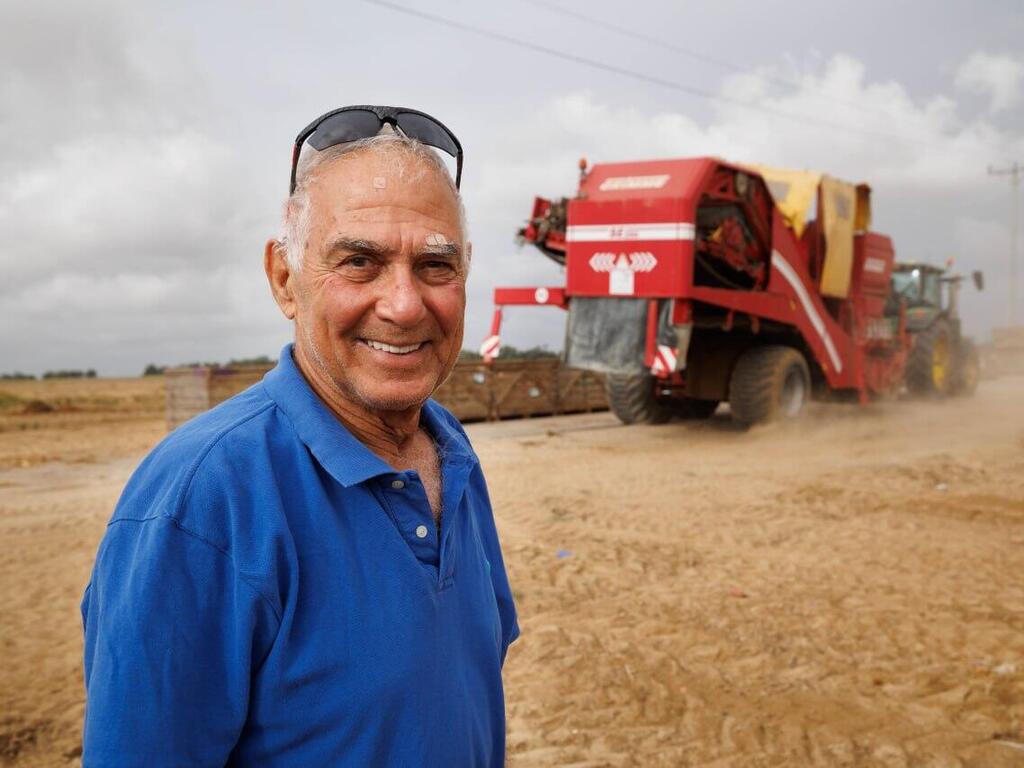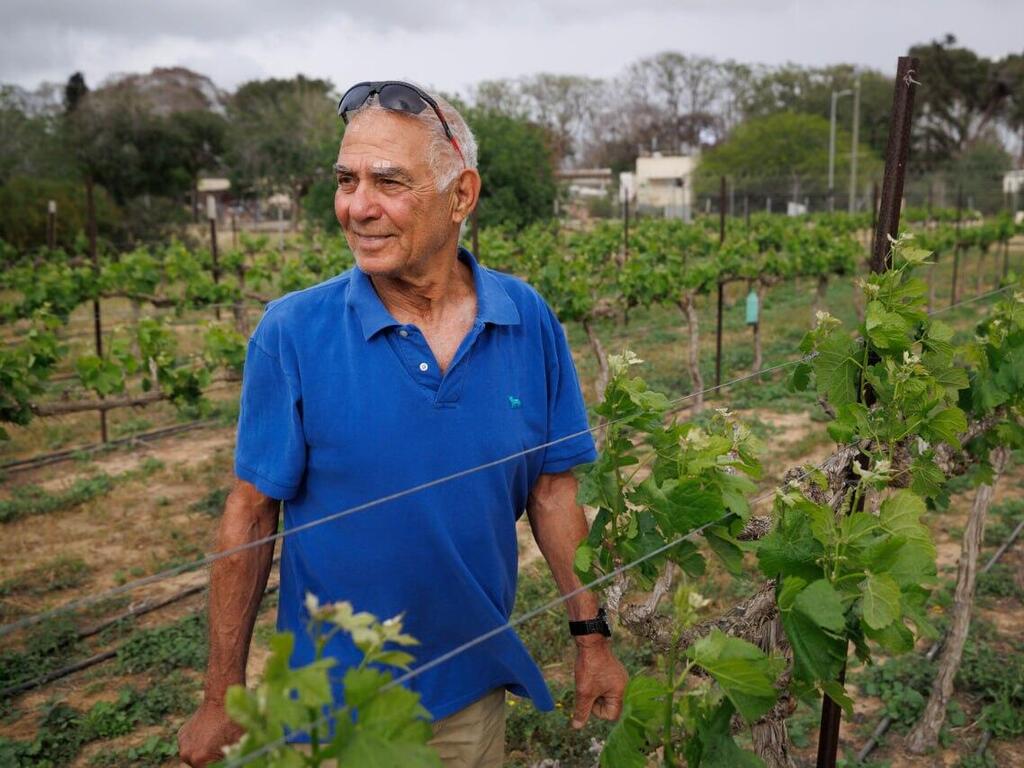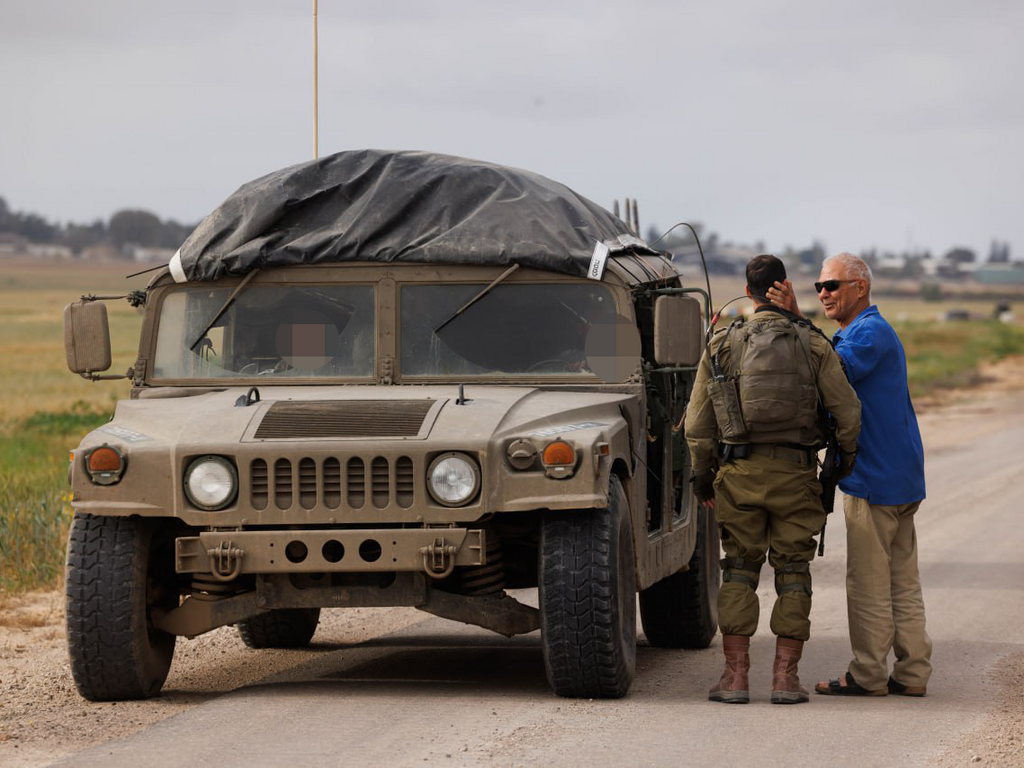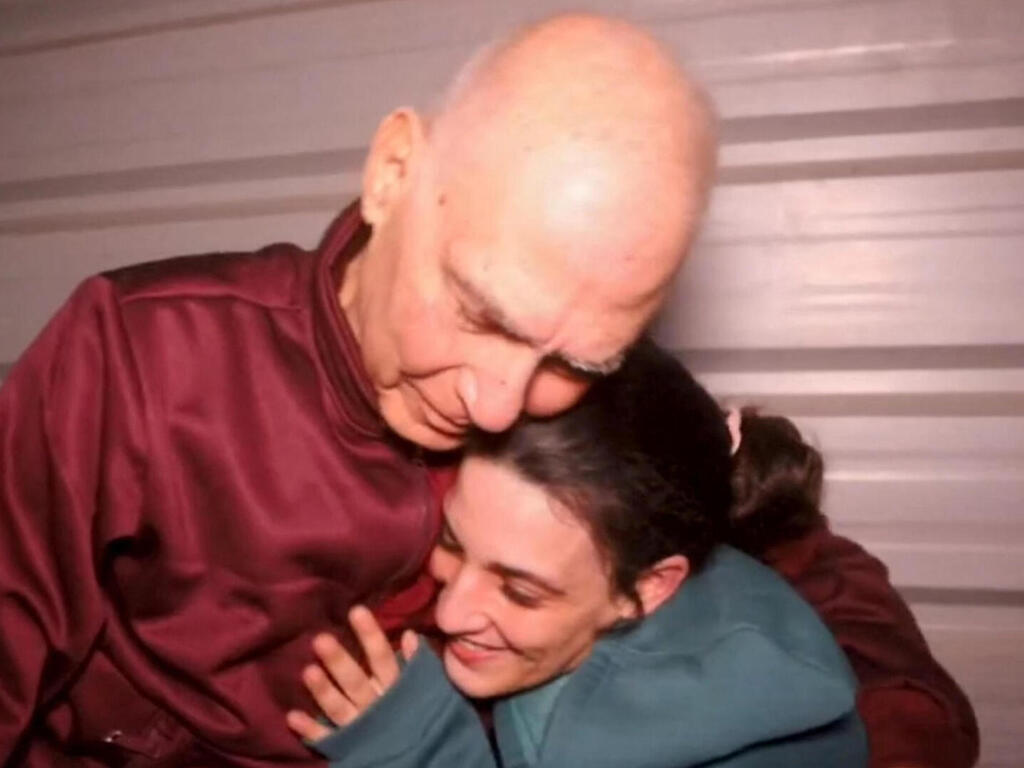One year after he was abducted from his home during Hamas-led attacks on southern Israel, Gadi Mozes is celebrating Passover in freedom — a stark contrast to the solitary confinement he endured in Gaza.
Mozes, 81, was kidnapped from Kibbutz Nir Oz on Oct. 7, 2023, and held by Palestinian Islamic Jihad for nearly 16 months. Released during the first phase of a hostage exchange deal, he is now back home with his family and reconnecting with the land and community he helped build over decades.
“This is the holiday of freedom in every sense,” Mozes said in an interview. “After understanding what it means to have no freedom, and suddenly being completely free — it’s a feeling you can’t describe in words.”
During captivity, Mozes said he was held alone with two guards. His captors controlled every aspect of his life, from meals to bathroom breaks. “You have no will of your own,” he said. “You’re chained by the absence of freedom.”
Now back in Nir Oz, Mozes walked through the fields wearing sandals and work pants, inspecting the vegetation and checking irrigation systems. A veteran agronomist, he once managed the kibbutz’s agricultural development and advised on farming projects in Israel and abroad.
Born in Hadera, Mozes moved to Nir Oz at 18 with members of the socialist youth movement Hashomer Hatzair. “We were all young and full of energy,” he said, recalling the early days of the kibbutz. “We built everything from the ground up.”
During his time in captivity, Mozes clung to memories of home — the fields, the seasons, even the boutique winery he co-founded two decades ago. He was surprised to find the vineyard still operating when he returned, thanks to the efforts of the next generation.
Despite the trauma, Mozes has thrown himself into rebuilding the kibbutz, much of which was destroyed in the Oct. 7 attack. He is helping launch a new project growing rosemary and is advocating for government support to rebuild housing, education and medical services.
“We’re a 70-year-old community that was shattered,” he said. “People lost everything — homes, memories, heirlooms. The state needs to show solidarity, not just through therapy, but also with practical help and understanding.”
Mozes acknowledged the emotional toll of returning to the site of the attack. On the morning of his abduction, he was at home with his partner, Efrat Katz, her daughter Doron Katz Asher, and granddaughters Raz and Aviv. All four were abducted. Katz was later killed by Israeli helicopter fire, while the others were released in the same deal as Mozes.
He said he confronted the gunmen in an attempt to draw attention away from the girls. “That part worked,” he said. “The rest is history.”
In Gaza, Mozes said he endured harsh conditions and tense encounters with his captors, including a teenage guard who ordered him to stay silent. He described intervening in domestic disputes among the captors and ultimately being moved to a different location, where he was held with two Thai nationals.
Despite everything, Mozes said he harbors no hatred. “Anger isn’t a working tool,” he said. “We need to build a country based on unity and solidarity.”
He remains focused on those who are still missing. Fourteen residents of Nir Oz are among the 59 hostages still believed to be held in Gaza. “We’re not free until they’re back,” Mozes said. “Releasing the hostages has to come before everything. Even if the price is unbearable, we can’t forget them.”
Get the Ynetnews app on your smartphone: Google Play: https://bit.ly/4eJ37pE | Apple App Store: https://bit.ly/3ZL7iNv
He recalled the moment of his release, when he embraced fellow hostage Arbel Yehoud, a young woman who, he said, could have been his granddaughter. “It was the first time I saw another Israeli, the first time I spoke Hebrew again.”
“There is great joy in being home,” Mozes said. “But it’s not complete — not until everyone comes back.”





